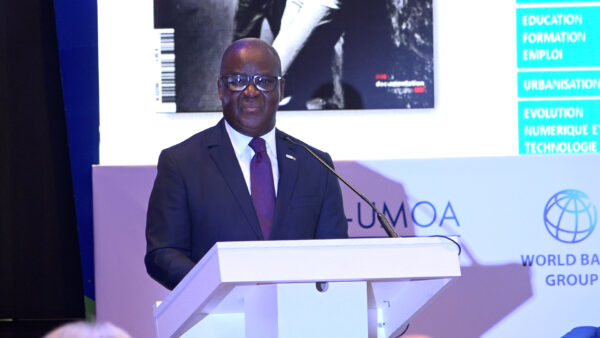At the 2nd edition of the West Africa Sustainable Finance & Investment Forum (WASFIF 2025), the CEO of BRVM, Dr Edoh Kossi Amenounvé, delivered an analysis on the levers of financing growth in Africa, around the theme: “Sustainable finance in Africa, what levers for accelerating development?”. According to him, Africa faces a dual imperative: greening its economy while strengthening its capacity for internal financing, so that climate change does not become a lasting economic catastrophe.
The CEO of BRVM pointed out that the continent’s financing needs have quadrupled in twenty years, without a significant increase in Africa’s share of foreign direct investment.
However, he observes a progression of the two main pillars of local financing: the banking sector, where the total balance sheet of the top 30 banks has quadrupled, and capital markets, where capitalization has doubled thanks to the creation of new stock exchanges and the development of the debt market. “The dynamics of financing our economies must now rely on local financing,” he emphasized.
With an average growth of 4.1%, African economies remain resilient, but far from the threshold of 16% over 15 to 20 years necessary to permanently lift them out of underdevelopment. In addition, there are multiple challenges: disparities between countries, demographic pressure, accelerated urbanization, and climate imperatives.
Sustainable finance as a catalyst for transformation
For Dr Amenounvé, sustainable finance in its three dimensions – solidarity, responsibility, and greenness – represents an essential tool to support inclusive and environmentally respectful growth. However, he warns: “Even sustainable finance will not be enough if it does not evolve with the changes in digital finance.” He thus calls for an integrated approach, combining financial innovation, regulatory transparency, and mobilization of local savings through digitalization.
The head of BRVM advocates for providing more resources to African asset managers, so that they become true actors in sustainable financing. He also emphasizes the importance of appropriate regulation, ensuring transparency of operations and the creation of an ecosystem of local impact investors capable of supporting green and inclusive projects.
In conclusion, Dr Amenounvé issued a call to action: “If we create a favorable regulatory environment, if we promote impact investors and mobilize local savings through digital finance, then sustainable finance can truly accelerate growth, transform our economies, and ensure better shared wealth.”


